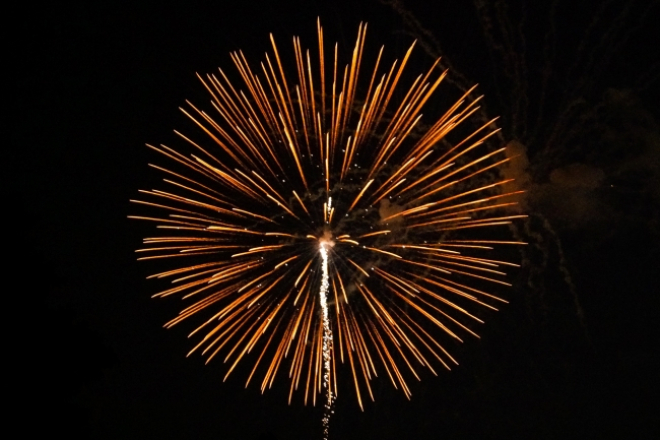Extra measures to prevent the misuse of fireworks published

Fireworks can cause distress to people suffering from phonophobia as well as to livestock, animals in their natural habit and pets. To help address this, extra measures to prevent the misuse of fireworks and pyrotechnics in public places, including sporting and live music events, have come into force to help protect public safety.
From 6 June 2023 unless you have a ‘reasonable excuse’ or are exempt, you will be breaking the law if you are found to have:
- any firework or pyrotechnic other than category 1 fireworks (for example party poppers, novelty crackers and sparklers) in any public place including the street and parks
- any firework (including category 1) or pyrotechnic, such as handheld flares, at sport and live music events in venues that can hold 1000 or more people
It is already a criminal offence to take or try to take a pyrotechnic into football matches.
Category 1 fireworks: what these are
If you are caught breaking the law
You and your vehicle can be stopped and searched by the police if they suspect you are carrying fireworks illegally.
Warning
If you are found carrying fireworks or pyrotechnics illegally you could get a prison sentence of up to 6 months, be fined up to £5,000 – or both.
What is meant by a reasonable excuse
Whether someone has a ‘reasonable excuse’ to have a firework or pyrotechnic will depend on the circumstances. This will be for the police and courts to decide on, on a case-by-case basis.
Exemptions
There are some situations where it is not an offence to have fireworks or pyrotechnics in a public place. This includes if:
- you need it for your job
- you are taking part in an activity where it is appropriate to have it, for example a distress flare carried by hillwalkers or when on a boat
You are also exempt if you are any of the following and using pyrotechnics as part of your job or role:
- a professional firework or pyrotechnic organiser or operator, for example at an organised display or event
- employed by a regulatory authority
- involved in the manufacture, import, distribution, or supply of fireworks
- a member of the armed forces (including cadets) or connected with law enforcement, search and rescue or similar organisations either as an employee or volunteer
What are pyrotechnics and fireworks
Pyrotechnics contain explosive substances that are made to produce heat, light, sound, gas and/or smoke through chemical reactions. Examples include pyrotechnics used to create theatrical effects, distress flares, and smoke machines.
Fireworks are a type of pyrotechnic that are used for entertainment. They are categorised depending on the type of firework and what it is made of, as well as the hazard risk and noise levels.
Other changes to the law on fireworks
This is one of a number of changes to the law on the sale and use of fireworks in Scotland, as part of the Fireworks and Pyrotechnic Articles (Scotland) Act 2022.


